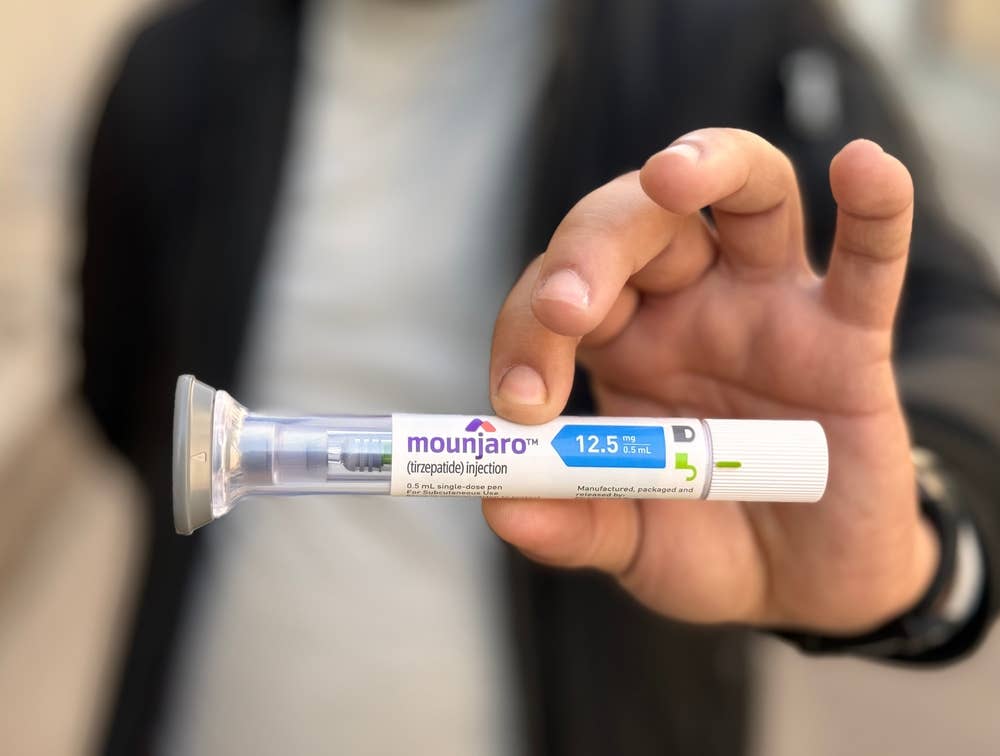Game-changing surgical procedure successfully treats prostate cancer in less than an hour
An hour-long operation that uses electrical currents to destroy hard-to-reach tumors offers hope for thousands of men with prostate cancer.

The 'game-changing' treatment uses electrical currents to destroy difficult to reach tumors. (CREDIT: Creative Commons)
An hour-long operation that uses electrical currents to destroy hard-to-reach tumors offers hope for thousands of men with prostate cancer. Described as a "game-changing" treatment, the innovative procedure could lead to a cure. Surgeons have hailed the "amazingly simple and quick" technique known as the 'Nanoknife' operation.
The 'Nanoknife' procedure administers electrical pulses into the tumor, utilizing a technique called irreversible electroporation. This method cuts open the cell membrane of the tumor in a less invasive way than traditional treatments. As a result, there is less risk of damage to surrounding organs and tissues.
By using this revolutionary approach, doctors can target tumors that would otherwise be difficult to access. The treatment offers new possibilities for patients with prostate cancer, paving the way for a simpler and more effective cure.
Over 50,000 cases of prostate cancer are diagnosed each year, prompting the NHS to introduce Nanoknife therapy as an alternative treatment option. Traditional treatments for prostate cancer involve radiotherapy or prostate removal surgery, which often result in complications such as incontinence, urinary problems, and sexual dysfunction.
Related Stories
In contrast, Nanoknife therapy has a lower risk of side effects and can be performed more efficiently. The initial six Nanoknife operations on the NHS were conducted by UCLH surgeons.
Professor Mark Emberton, a consultant urologist, expressed his views on the treatment and stated that it presents a novel approach for cell destruction. He further added that it is an uncomplicated technique that can be easily taught to surgeons, which makes it a game-changer in the field of therapy.
According to Emberton, Nanoknife has the capability to transform into a standard treatment for prostate cancer, unlike targeted treatments that are only accessible in major specialized centers at present.
The professor explained that day surgery can help alleviate the strain on the NHS during periods of high demand, as it eliminates the need for patients to stay overnight in hospital and allows for better utilization of operating theaters.
One of the recipients of the NHS treatment, Neil Gershon, expressed his attraction to the procedure by highlighting its lower risk of collateral damage.
He recounted his experience, saying, "It was completed in a day, which was fantastic. After the effects of the general anesthesia subsided, I felt perfectly fine, with no discomfort. It couldn't have gone any smoother."
Doctor using the Electroporation (NanoKnife) passing electric currents directly into the tumour via a needle to kill off cancerous cells. (CREDIT: Creative Commons)
Natalia Norori, the knowledge manager at Prostate Cancer UK, has said the therapy could ‘make a big difference to the quality of life of men diagnosed with localized prostate cancer’.
The Nanoknife, created by AngioDynamics, uses electrodes to administer quick electrical pulses that eliminate cancerous cells by enveloping the tumor.
Experts revealed that using MRI scanning to guide the short pulses makes it possible to aim at the precise area. This approach ensures that the surrounding healthy cells remain untouched and are preserved.
Consultant urologist Alistair Grey, who led the first operations using the technique, and his team. (CREDIT: Eddie Mulholland)
According to Natalia Norori, Prostate Cancer UK's knowledge manager, preliminary studies indicate that treatments like the Nanoknife could potentially cure prostate cancer while also minimizing side effects for men. This technology is one of several focal therapy types on the horizon that have been developed to accurately target tumors and decrease damage to the rest of the prostate.
The efficacy of Nanoknife could significantly improve men's quality of life. However, larger clinical trials are necessary to determine whether it is as effective as conventional treatments.
On the first day, the UCLH team performed six procedures, including one on 70-year-old Neil Gershon.
Despite the operations at UCLH, Norori stated that larger trials are required to test the effectiveness of Nanoknife.
Symptoms of prostate cancer:
According to the Mayo Clinic, prostate cancer may cause no signs or symptoms in its early stages.
Prostate cancer that's more advanced may cause signs and symptoms such as:
Trouble urinating
Decreased force in the stream of urine
Blood in the urine
Blood in the semen
Bone pain
Losing weight without trying
Erectile dysfunction
Causes of prostate cancer:
According to the Mayo Clinic, based on current information on the subject, it's not clear what causes prostate cancer.
The prostate gland is located just below the bladder in men and surrounds the top portion of the tube that drains urine from the bladder (urethra). (CREDIT: Getty Images)
Doctors know that prostate cancer begins when cells in the prostate develop changes in their DNA. A cell's DNA contains the instructions that tell a cell what to do. The changes tell the cells to grow and divide more rapidly than normal cells do. The abnormal cells continue living, when other cells would die.
Prostate gland: The prostate gland is located just below the bladder in men and surrounds the top portion of the tube that drains urine from the bladder (urethra). The prostate's primary function is to produce the fluid that nourishes and transports sperm (seminal fluid).
The accumulating abnormal cells form a tumor that can grow to invade nearby tissue. In time, some abnormal cells can break away and spread (metastasize) to other parts of the body.
Risk factors for prostate cancer:
According to the Mayo Clinic, factors that can increase your risk of prostate cancer include:
Older age. Your risk of prostate cancer increases as you age. It's most common after age 50.
Race. For reasons not yet determined, Black people have a greater risk of prostate cancer than do people of other races. In Black people, prostate cancer is also more likely to be aggressive or advanced.
Family history. If a blood relative, such as a parent, sibling or child, has been diagnosed with prostate cancer, your risk may be increased. Also, if you have a family history of genes that increase the risk of breast cancer (BRCA1 or BRCA2) or a very strong family history of breast cancer, your risk of prostate cancer may be higher.
Obesity. People who are obese may have a higher risk of prostate cancer compared with people considered to have a healthy weight, though studies have had mixed results. In obese people, the cancer is more likely to be more aggressive and more likely to return after initial treatment.
Prevention of prostate cancer:
The Mayo Clinic believes that people can reduce their risk of prostate cancer if they:
Choose a healthy diet full of fruits and vegetables. Eat a variety of fruits, vegetables and whole grains. Fruits and vegetables contain many vitamins and nutrients that can contribute to your health.
Whether you can prevent prostate cancer through diet has yet to be conclusively proved. But eating a healthy diet with a variety of fruits and vegetables can improve your overall health.
Choose healthy foods over supplements. No studies have shown that supplements play a role in reducing your risk of prostate cancer. Instead, choose foods that are rich in vitamins and minerals so that you can maintain healthy levels of vitamins in your body.
Exercise most days of the week. Exercise improves your overall health, helps you maintain your weight and improves your mood. Try to exercise most days of the week. If you're new to exercise, start slow and work your way up to more exercise time each day.
Maintain a healthy weight. If your current weight is healthy, work to maintain it by choosing a healthy diet and exercising most days of the week. If you need to lose weight, add more exercise and reduce the number of calories you eat each day. Ask your doctor for help creating a plan for healthy weight loss.
Talk to your doctor about increased risk of prostate cancer. If you have a very high risk of prostate cancer, you and your doctor may consider medications or other treatments to reduce the risk. Some studies suggest that taking 5-alpha reductase inhibitors, including finasteride (Propecia, Proscar) and dutasteride (Avodart), may reduce the overall risk of developing prostate cancer. These drugs are used to control prostate gland enlargement and hair loss.
However, some evidence indicates that people taking these medications may have an increased risk of getting a more serious form of prostate cancer (high-grade prostate cancer). If you're concerned about your risk of developing prostate cancer, talk with your doctor.
Note: Materials provided above by The Brighter Side of News. Content may be edited for style and length.
Like these kind of feel good stories? Get the Brighter Side of News' newsletter.



